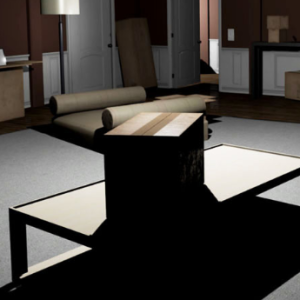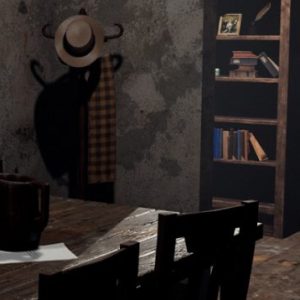Similiar games
Harem Hotel takes place inside a single building that serves as the central location for the entire story. The player assumes the role of a young man who inherits or begins managing the hotel. Within this setting live several residents, each with their own storylines, routines, and interactions. The hotel functions both as workplace and home, where the player balances management duties with personal relationships. The game focuses on long-term progression, using time cycles and dialogue events to gradually reveal each character’s background and development.
Gameplay Structure and Core Systems
Harem Hotel combines management mechanics with visual novel storytelling. The player advances by spending in-game days performing actions, improving facilities, and building relationships with residents.
The primary gameplay loop includes:
- Managing daily activities such as cleaning, upgrading rooms, or earning money.
- Interacting with residents through dialogue sequences that unlock new scenes.
- Increasing character affection levels to progress personal storylines.
- Purchasing upgrades or new features for the hotel that affect gameplay options.
This loop repeats throughout the game, where progress is defined by efficiency, resource allocation, and consistency.
Relationship Paths and Story Progression
Each resident in Harem Hotel has a separate narrative path, but the structure connects all characters through shared events. Interactions take the form of conversations, small tasks, and choices that impact character trust and affection. The story progresses in chapters tied to character levels, meaning new content becomes available as relationships advance. Some scenes are triggered automatically, while others depend on specific conditions such as money, time of day, or hotel upgrades. This system allows multiple paths to unfold simultaneously, creating a layered form of progression that mixes management and storytelling.
Visual Presentation and Technical Layout
Harem Hotel uses a visual novel interface with a point-and-click layout. Each area of the hotel can be selected from a menu, representing locations like the lobby, bar, kitchen, or resident rooms. Character portraits and static backgrounds change depending on the time of day or event conditions. Audio feedback supports dialogue and scene transitions, while the interface tracks metrics such as money, experience, and character levels. The design keeps interaction simple, focusing attention on routine actions and relationship growth rather than complex mechanics.
Experience and Replayability
Harem Hotel creates an experience built on gradual discovery. Each cycle of interaction produces new events, and the passage of in-game days reinforces the sense of long-term management. The player’s success depends on how efficiently they balance income, upgrades, and relationships. Multiple character paths and branching stories offer replay value, as different choices reveal alternate scenes and dialogue. The game’s structure allows for slow accumulation of progress, where every action contributes to unlocking more of the hotel’s life and the individual stories contained within it.




















